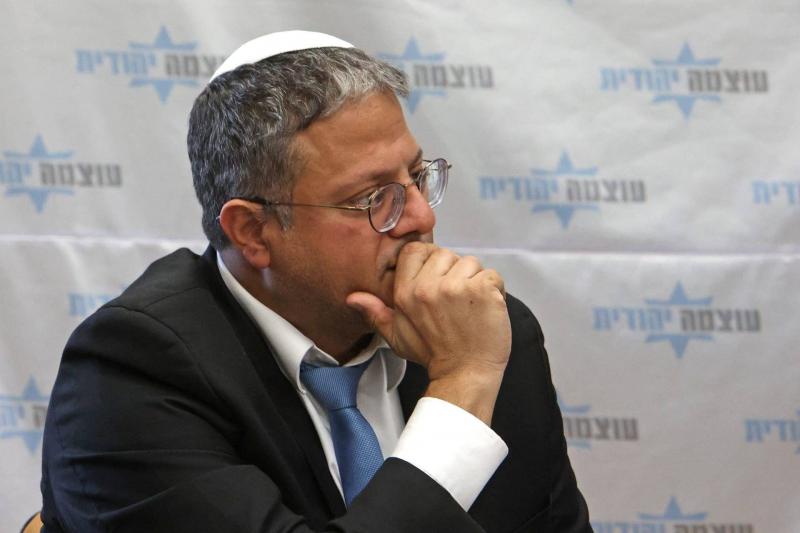Israeli Channel 13 reported from sources that the extremist National Security Minister Itamar Ben Gvir said in a ministerial meeting that reaching a deal now would be a slap in the face to Trump and a victory for Biden. The channel mentioned that just hours after Chief of Mossad David Barnea informed the ministers in the Israeli Political-Security Cabinet about the fate of the Israeli female captives held in Gaza, he stated: "The girls in captivity don’t have the time," responding to comments made by Minister Ben Gvir, who suggested waiting for the results of the U.S. elections, which is about six months away. During the Cabinet meeting, the Mossad chief presented updated details to the ministers about "negotiations regarding the deal, the implications of the attempted assassination of Mohammed Deif – and Israel's positions." Ben Gvir said that "reaching an agreement now is a blow to Trump – which would be a victory for Biden," and he faced criticism from the ministers for this statement. Ministers Gila Gamliel and Miri Regev commented: "We must work for an immediate release; the hostages have been there for nine months. Women can give birth during this period." Mossad's Barnea stated that "the children in captivity do not have the time to wait for additional negotiation terms to be formulated."
An Israeli delegation arrived in Egypt to continue ceasefire talks regarding Gaza, as Israel and Hamas are considering the latest proposal, according to three Egyptian officials at the airport, who did not provide further details. The airport officials indicated that the Israeli delegation includes six officials whose identities were not disclosed. This follows the postponement of a discussion that Mossad chief David Barnea was set to hold this week in Doha, while Israeli reports indicate that Israeli delegations are continuing discussions with mediators in Doha and Cairo. Reports state that international mediators are pushing Israel and Hamas towards a phased agreement that would halt fighting and secure the release of about 120 Israeli captives held by factions in Gaza.
This development comes as Israeli Prime Minister Benjamin Netanyahu sets new conditions, which security leaders view as a major obstacle to completing the deal, while Defense Minister Yoav Gallant accuses him of obstructing the agreement for fear of losing the government. Talks between the two sides stumbled over the weekend when Israel reported it targeted the military commander of Hamas, Mohammed Deif, in an attack on displaced persons' tents in Khan Younis, resulting in the deaths of at least 90 people. Gallant informed his American counterpart Lloyd Austin that such intense pressure on Hamas "created the necessary conditions for reaching an agreement to return the hostages." No further details were provided in a statement from his office.
The Israeli Public Broadcasting Corporation reported, citing sources familiar with the negotiations, that "communications are ongoing, including daily discussions held by the Mossad chief with the Qataris and Americans." Yedioth Ahronoth clarified that at this stage of the negotiations, mediators are waiting for an Israeli response regarding two issues: "the return of militants to northern Gaza and the Philadelphia Route and Rafah crossing." According to Kan 11, the ball remains in Israel's court, as Netanyahu must decide whether to accept the negotiating team's proposal regarding the Philadelphia Route and the return of residents to northern Gaza. It emphasized that the continuation of talks "is currently dependent on Netanyahu's decision." Members of the Israeli negotiating team believe that if the condition of inspecting the returning residents to northern Gaza is not lifted, the deal would be considered "void." They assert that "the agreement could have been signed a week ago, as significant progress had been made behind the scenes."




